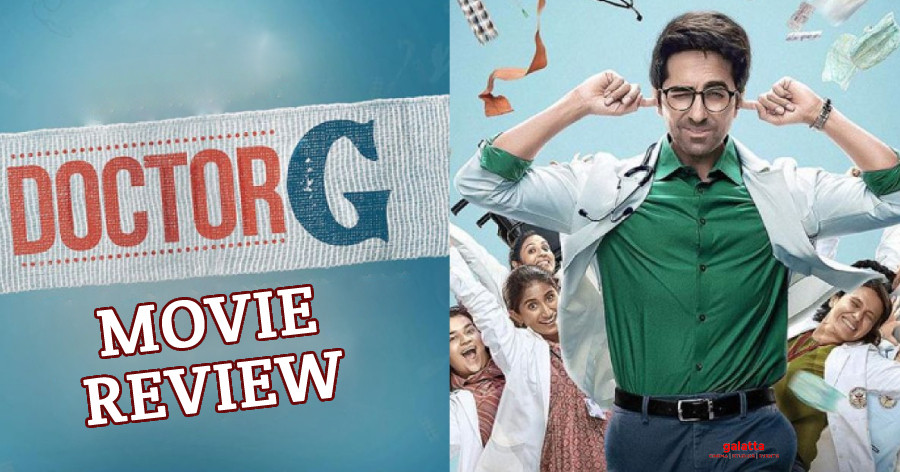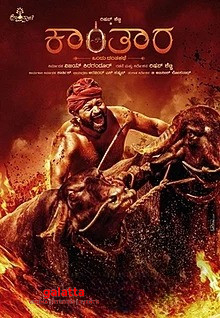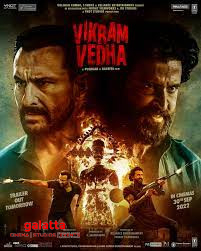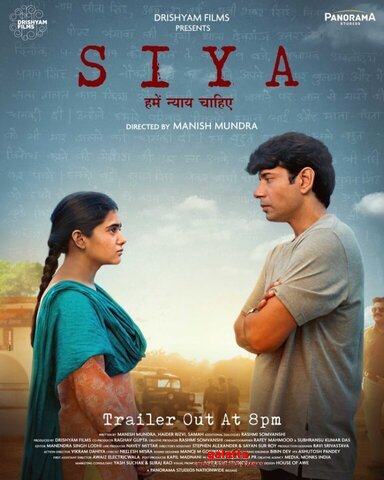
Doctor G Movie Cast & Crew
On the surface, Anubhuti Kashyap's Doctor G looks like another product from the Ayushmann Khurrana Assembly Line (AKAL™). Icky issue? Check. An embarrassed protagonist? Check. Eventual acceptance? Check. This time, Ayushmann plays a MBBS graduate named Uday. He wanted orthopedics for his PG, but ended up with gynaecology. That's the icky issue our protagonist is embarrassed by. How can he treat body parts he doesn't have? That's how he puts it. I was reminded of the superb shot from The Silence of the Lambs, where a tiny Jodie Foster is surrounded in an elevator by men who tower over her. She's a rarity in the FBI: gender-wise, size-wise. Uday is that Jodie Foster character. He is the only male in the PG course, headed by a stern Shefali Shah. Couldn't the gynaecology class have had one more man? After all, we are told that many of the country's top gynaecologists are male. Ah, but that would mess up the film's programmatic design.
And make no mistake, this is a "designed" film, at least till the interval. The screenplay seems to have been written with this idea: "Why mess with a winning formula?" And so we get a quirky mother, played by Sheeba Chaddha. Uday gets ragged by seniors, all women. We get a cartoonish scorecard that keeps a tally of Uday's humiliations. The music works overtime to convince us that we are watching something "quirky". But why does Doctor G eventually feel different from other films from the AKAL™? Because the entire arc of icky issue to embarrassment to acceptance is covered in the first half, which ends on a dreadfully melodramatic note that doctors are gods. The sentiment itself is fine. It's just that it does not fit the AKAL™. For those few minutes, we seem to be in another movie altogether.
And then, in the second half, we actually get another movie altogether. If the first half is about Uday's coming-of-age as a gynaecologist, the post-interval portions are about Uday's coming of age as a human being. This involves a teen-pregnancy subplot that turns dead serious. The jokes evaporate, and we end up with a dull drama whose every single beat is predictable. At first, Uday complains about his girlfriend, unable to digest the fact that she has other male friends. Now, he is able to understand that men and women can be "just friends". So on and so forth. Earlier, Uday is so sexist that he thinks cricket is the man's game and only women play badminton. Well, guess which sport Uday gets to play in latter portions?
The writing is patchy. A case filed against Uday is miraculously dropped. The major point about Uday forgetting about the "male touch" and thinking only about the "doctor touch" is accomplished all too quickly. A few things work, like Uday's big scene with his mother, or his relationship with the Muslim doctor, beautifully played by Rakul Preet Singh. But the sudden change of mind by his superior feels like they were in a hurry to get to the end, and it involves another dreadfully melodramatic moment, this time with the pregnant teenager. In the earlier AKAL™ films, the comedy yielded nuggets of startling truths. There was genuineness, honesty. But here, everything feels fake, calculated, manipulative. Ayushmann can play these roles in his sleep, and it's to his credit that he doesn't. But he really needs to be careful about his films now. He may have reached the end of the assembly line.
About Author

Baradwaj Rangan
National Award-winning film critic Baradwaj Rangan, former deputy editor of The Hindu and senior editor of Film Companion, has carved a niche for himself over the years as a powerful voice in cinema, especially the Tamil film industry, with his reviews of films. While he was pursuing his chemical engineering degree, he was fascinated with the writing and analysis of world cinema by American critics. Baradwaj completed his Master’s degree in Advertising and Public Relations through scholarship. His first review was for the Hindi film Dum, published on January 30, 2003, in the Madras Plus supplement of The Economic Times. He then started critiquing Tamil films in 2014 and did a review on the film Subramaniapuram, while also debuting as a writer in the unreleased rom-com Kadhal 2 Kalyanam. Furthermore, Baradwaj has authored two books - Conversations with Mani Ratnam, 2012, and A Journey Through Indian Cinema, 2014. In 2017, he joined Film Companion South and continued to show his prowess in critiquing for the next five years garnering a wide viewership and a fan following of his own before announcing to be a part of Galatta Media in March 2022.


















